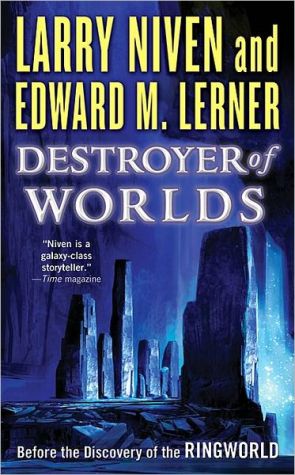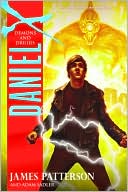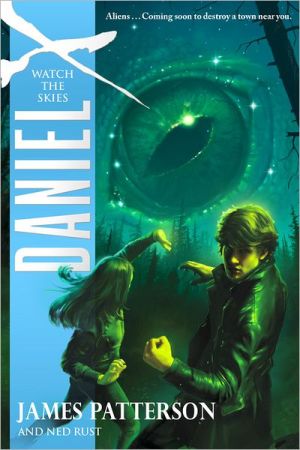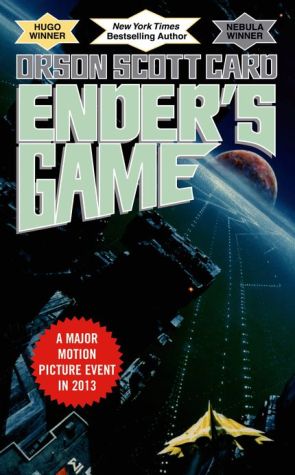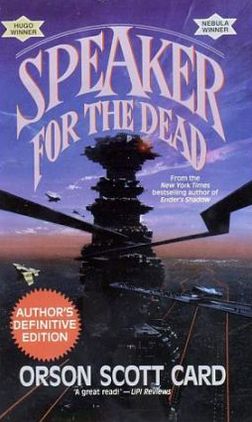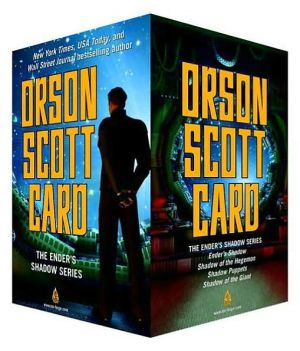Destroyer of Worlds (Known Space Series)
The scariest aliens in the galaxy follow a simple rule: destroy all opposition.\ The brilliant, xenophobic Pak are fleeting the chain reaction of supernovae at the galaxy's core. Nothing and no one is going to stop their migration. Any civilization that could possibly interfere lies shattered in their wake. And now the Fleet of Worlds is in their sights.\ The trillion Puppeteers who inhabit the Fleet might have the resources to confront the threat, but Puppeteers are philosophical cowards....
Search in google:
Worlds closer to the galatic core than Known Space are --or were-- home to intelligent speciers. Some learned of the core explosion in time to flee. Destroyer of Worlds opens in 2670, ten years after Juggler of Worlds closes; with refugee species fleeing in an armada of ramscoops in the direction of the Fleet of Worlds. The onrushing aliens are recognized as a threat; they have left in their trail a host of desolated worlds: some raided for supplies, some attacked to eliminate competition, and some for pure xenophobia. Only the Puppeteers might have the resources to confront this threat--but the Puppeteers are philosophical cowards... they don't confront anyone. They need sepoys to investigate the situation and take action for them. The source of the sepoys? Their newly independent former slave world, New Terra. Publishers WeeklyFleeing a massive explosion at the galactic core, a human colony and their allies, the alien Puppeteers, discover they are not the only ones desperate to outrace destruction in the third prequel to Niven's Ringworld saga (after 2008's Juggler of Worlds). Thssthfok, a ruthless Pak, will do anything to safeguard his clan after Pakhome is destroyed. Paranoid human agent Sigmund Ausfaller and Puppeteer Baedeker are sent to investigate a distress call from the Gw'oth, who have detected a suspicious ship headed toward the Fleet. Sigmund agrees to work with the Gw'oth, but he's concerned that their insatiable drive for scientific development may make them an even bigger threat than the Pak. With the authors working hard to knit together backstory, this one is primarily for fans of Niven's Known Space setting who will enjoy seeing past puzzles made clear. (Nov.)
\ 1\ Intelligence was overrated. \ Not unimportant, merely not the everything that many made intelligence out to be. Intelligence leapt instantly, inexorably, from the merest observation to subtle implication to profound deduction to utter certainty. Intelligence laid bare the threats, vulnerabilities, and opportunities that lurked everywhere. Intelligence understood that other minds all around raced to similar conclusions— \ And that countless rivals would take immediate action thereon. \ To become a protector, awakening into intelligence, was to lose all innocence, and with it the ability ever to let down one’s guard. \ But here, now, so very far from home, things were different. \ Thssthfok stood alone atop a glacial vastness, clad only in a thin vest, worn for its pockets rather than for warmth. His hard, leathery skin was proof against the cold, at least for short periods. A portable shelter stood a few steps away, his shuttlecraft not much more distant. \ The air was clean and crisp and bland in his nostrils. The oceans of this pristine world teemed with life, mostly single- celled, but the land remained barren. There were no native predators to fear here. As for protectors, the most formidable of predators, within a day- tenth’s travel, there was only himself. \ The children and breeders Thssthfok lived to protect were all on Pakhome, incommunicably distant. Their safety had been entrusted to kin and further guaranteed, to the extent that was possible, with hostages, promised rewards, and dire threats. Without such mea sures,Thssthfok could never have come. That would have been unfortunate, for if this mission succeeded, all in clan Rilchuk might enjoy the greatest possible protection— \ Release from the endless wars of Pakhome. \ The only sound, but for the wind, was the whir of powerful electric motors laboring to extract deep core samples. Locked into the glacier was a story eons in the making, written in layers of ice, traces of ash, and microscopic bubbles of trapped gases. \ Thssthfok was here to read it. \ The concentrations of trapped gases would speak of the evolving climate. The traces of ash would reveal the frequency of volcanic eruptions. Occasional dustings of rare metals like iridium would disclose the impacts of large meteors. Patterns in the thickness of layers would speak to .uctuations in ocean volume and worldwide ice cover. That information, and the detailed observations of newly emplaced satellites, and the mea sured orbital pa rame ters of this world . . . together they would reveal much about the long- term suitability of this place. \ For this world offered far more temperate climes. Suitably prepared, much of the land here might be as pleasant as the great savannahs on which the Pak had evolved—if present conditions persisted. Planetary engineering took time and great resources. To relocate the entire clan— hundreds of protectors and many thousand children and breeders— would be a massive undertaking. Thssthfok had crossed a hundred light- years to answer a single question: How variable was the climate here? \ He needed core samples, drilling as far back in time as he could get. A climate forecast rooted only in today’s data was no more than a guess, and no basis for casting the fate of everything he held dear. The ice would yield its secrets, but the ice refused to be rushed.... \ And so, remote from danger, removed from any clues to the circumstances of his breeders, Thssthfok was safe. Safe— unlike almost anywhere, anytime, on Pakhome—to disregard the outside world. Safe to ignore past and future. Safe to immerse himself, unprotectorlike, in an unending present. Safe to return to an age before thought. \ Safe to dream of his time as a breeder . . . \ THSSTHFOK REMEMBERED. \ He remembered hunting and mating and .ghting and exploring, always with zest. He remembered being curious about everything and understanding almost nothing. He remembered his pride in the ability to fashion a pitiful few tools: sharpened sticks, chipped- stone implements, straps cut from cured animal hide. He remembered staring, awestruck, into camp.res. He remembered conversing with family— if the concepts expressible in a few hundred grunts and gestures could be called conversation. \ The world then was ever new and exciting and usually inexplicable. Sometimes, when people died, a reason was obvious: torn by wild beasts, or fallen from a great height, or impaled on a spear. But many deaths came without warning or reason, with only the onset of bad scents to explain. \ For scent was everything: how one found or avoided one’s enemies; how one bonded with one’s family; how one was drawn to mates and knew one’s own children. \ He remembered the rich, warm scent of family. Every person had a unique smell, and yet the subtleties of that aroma declared one’s lineage for generations. He was not called Thssthfok then. There were no names, for names were not necessary. To smell relationships suf.ced. \ Scent was everything, and death was everywhere, and life— \ Life was intense. \ Lightning and starlight, seasons and tides, the ways of beasts and the wants of the mysterious beings occasionally glimpsed at a distance (and even less often, intervening) . . . all were unfathomable and wondrous. \ For all their poignancy and grip, those memories were indistinct. A breeder merely dipped a toe into the great sea of sapience. \ And then, one day, as happened to all breeders who reached a suitable age, he smelled . . . \ Heaven. \ Heaven was another vague concept for breeders. As they threw rocks and spears, so, obviously, far mightier beings hurled the lightning. Who but gods could carry sun and moon across the sky? Who but gods could arrange the stars and command the phases of the moon? Perhaps, as many thought, the gods descended from heaven and took mortal form to visit their people. It would explain the mysterious strangers and their magic implements. And since heaven was surely a better place, it would explain why the mysterious strangers came so seldom. \ Heaven, it turned out, was not in the sky. \ Heaven was a tree, scarcely more than a shrub, ordinary in every way, passed many times before, entirely familiar. On that day it exuded a scent of irresistible potency. Suddenly he had found himself prone at its roots, scratching with his bare hands at the rocky soil. The smell urged him forward, downward, indifferent to torn .ngernails and .ayed skin and the blood streaming from his hands. He must .nd— \ He did not know what. \ Fingers digging madly found a gnarled, yellow-orange length of tree root. The scent grew overpowering. When next he was aware of himself, his stomach was painfully engorged. His jaws worked mindlessly on a mouthful of something almost too .brous to chew. He was .at on his back beside a length of exposed tree root, from which a few rough- skinned tubers still clung. Sap oozed where more tubers had surely been ripped loose. In some dim recess of his thoughts, he knew it was a tuber like these on which he helplessly gnawed. \ All around was a stench that part of him wanted to .ee and part of him recognized was somehow himself. That his very scent could change was terrifying. Yet another part of him noted, with unusual clarity, that whatever had overcome him had left him helpless. This reek, if it repelled others as much as himself, was all that kept away his enemies. \ The new smell was already fading, changing to yet another odor, something strangely right for him. How could that be? What more had changed? In a panic, he explored his body. \ His hair had fallen out in clumps, from head and chest and limbs. His knees and elbows and hips protruded, magically become enormous. The knuckles of his hands were sore and enlarged. His mouth felt odd, the skin pulled unaccountably taut. When, fearfully, he explored with the hand unencumbered with a half- eaten tuber, his lips and gums were becoming one. His cheeks felt like cured animal hide. He patted his chest and legs and other arm. They, too, were becoming tough. He peered fearfully at his most personal parts— and they were gone! \ He howled, his anguish muf.ed by a mouthful of the root that had maimed him. And yet . . . Despite pain and shock and confusion, he could not help but notice: His thoughts had never been clearer. He continued to chew. \ THE DRONING OF MACHINERY CHANGED pitch as another deep ice core neared the surface. \ Thssthfok returned from the eternal present of a breeder into this present, awakening into a deep sense of loss. Breeders felt. Then, he had been one with the land, one with his family, passionate about every experience. \ Intelligence was a pale substitute. \ Only one emotion remained to him, all the more intense for subsuming the rest: He must protect those left behind. Not his children— for they were long gone, whether dead or transformed like him by tree- of- life root— but their children’s children’s children, and their children besides. \ As many generations must pass again before Thssthfok would return, while by ship time, coming and going at near light speed, hardly six years would have passed. He himself would have aged even less, his biological processes slowed to near immobility in cold sleep. \ Scent and memory were inextricably linked. With home fresh in Thssthfok’s thoughts, the sterile, scentless air above this windswept ice oppressed him. Perhaps he would return for a while to the expedition’s main base on the south- temperate continent, where the geologists and biologists labored. There he would .nd the scents of relatives, if only the weak emanations of other protectors. Shipboard, at least, there were synthesized scents. The best work of perfumers paled beside the heady, blended redolence of home and family, but it was something. \ A thunk announced the arrival from deep below the surface of the latest ice sample. Working with tongs lest any detail be lost to the heat from his hands,Thssthfok put the slim cylinder into a clear, insulated bag. The layers had been automatically scanned, the results already displayed, but Thssthfok studied the ice for himself. When it came to winnowing pattern from noise, no machine could compete with eye and brain and eons of evolution. \ Correcting effortlessly for the compression that varied with depth,Thssthfok pondered the strata in the ice. Some layers were thicker than others, the precipitation at this spot a clue to the extent of snowfall worldwide. At a glance he discerned cycles upon cycles upon cycles. \ Sun and moon and neighboring planets, each in its own way, each at its own pace, tugged on this world. And so the shape of its orbit changed, and the tilt of its axis, and the slow precession of its axial tilt. With each shift, the strength of sunlight varied across the globe. \ Of such minutiae are climates made. \ As had the samples before it, this latest core spoke of ice ages. Orbital variation explained most and volcanic ash layers the rest. The ice gave no reason to expect another ice age for many thousands of years. \ Almost certainly, Pakhome would face an ice age sooner. If Thssthfok was lucky, that next ice age would arise from Pakhome’s own astronomical cycles, long after his death. (If he was unlucky— well, with only normal luck— war would be what killed him. War killed most protectors. The competition for resources was ever .erce.) \ A part of Thssthfok would .nd an ice age—especially one hastened by a nuclear winter— fascinating, but he was a protector more than climatologist. With his family at risk, too distant to defend, the prospect .lled him with dread. Even a limited nuclear exchange would make the temperate zones uninhabitable for many years. Every family from those regions would set out to conquer new living space for his breeders. The struggles for equatorial territory would be brutal. \ Rilchuk, the island of Thssthfok’s birth, the home of his family, straddled the equator. Their land would be prized. Breeders with the wrong scent— his family!— would be slaughtered by any conqueror. \ Thssthfok thought: I must .nd a New Rilchuk, whether on this planet or another, a place to shelter my descendants for many generations. \ If I am not already too late. \ As he had a hundred times since reawakening from cold sleep, Thssthfok suppressed that qualm. Let doubt once blossom and he would lose the will to live. It was better not to dwell on circumstances that could not be known. \ He refocused on the ice core with renewed dedication. In his bones, he knew: This is the world. The sooner he could prove it, the sooner he could bring his descendants from— \ Within a sealed vest pocket, Thssthfok’s radio shrieked. It was tuned to the command channel, and the harsh warble was unambiguous: immediate emergency recall. \ Recall? Thssthfok needed deeper cores to prove this world safe. To make his breeders safe. Even to wrap the ice cores properly and recover the drilling equipment would take half a day. He took out his radio. “Commander, request another day. The cores—” \ Bphtolnok, commander of the mission, was stationed on their orbiting ramscoop. That the commander was Thssthfok’s grandfather’s sister would merit no favors. Everyone on the mission was family. \ Bphtolnok cut off Thssthfok. “Aboard in two day- tenths, or be left behind.” \ Excerpted from Destroyer of Worlds by Larry Niven and Edward M. Lerner.\ Copyright © 2009 by Larry Niven and Edward M. Lerner.\ Published in November 2009 by Tom Doherty Associates, LLC.\ All rights reserved. This work is protected under copyright laws and reproduction is strictly prohibited. Permission to reproduce the material in any manner or medium must be secured from the Publisher.
\ From Barnes & NobleThe final volume of Larry Niven's Ringworld prequel trilogy began with a massive galactic core explosion bang. As hoards of refugees frantically escape, they create chaos that stretches from planet to planet; star to star. The standalone sequel to Juggler of Worlds lives up to every expectation. Now in mass market paperback.\ \ \ \ \ \ Publishers WeeklyFleeing a massive explosion at the galactic core, a human colony and their allies, the alien Puppeteers, discover they are not the only ones desperate to outrace destruction in the third prequel to Niven's Ringworld saga (after 2008's Juggler of Worlds). Thssthfok, a ruthless Pak, will do anything to safeguard his clan after Pakhome is destroyed. Paranoid human agent Sigmund Ausfaller and Puppeteer Baedeker are sent to investigate a distress call from the Gw'oth, who have detected a suspicious ship headed toward the Fleet. Sigmund agrees to work with the Gw'oth, but he's concerned that their insatiable drive for scientific development may make them an even bigger threat than the Pak. With the authors working hard to knit together backstory, this one is primarily for fans of Niven's Known Space setting who will enjoy seeing past puzzles made clear. (Nov.)\ \ \ Kirkus ReviewsWrap-up of the far-future trilogy (Juggler of Worlds, 2008, etc.) set 200 years before the discovery of Niven's ever-popular Ringworld. The cowardly, herd-minded Puppeteers discover that a gigantic black hole at the center of the galaxy threatens to engulf all life. So they flee, launching entire planets across the void. The ferocious, single-minded Pak are also fleeing the core explosion, plundering and destroying as they go. Paranoid genius Sigmund Ausfaller, originally from Earth, has contacted another developing civilization. The Gw'oth aren't that smart individually, but they can form superintelligent mind-melds of up to 16 individuals. Er'o, one of the components of the 16-plex Ol't'ro, agrees to help Sigmund investigate the Pak. Intriguingly, humans and Pak turn out to be related-not that it matters in a universe where no species trusts any other. Individual characters aren't particularly convincing, but the depth of the various species' backgrounds and motivations more than compensate. Sigmund's problem: How to persuade the pusillanimous Puppeteers to take action against the rapacious Pak while allowing the supersmart Ol't'ro to help?Old-fashioned cerebral science fiction, with a huge array of fascinating aliens, subtle interactions between them and knotty problems for them to solve.\ \
